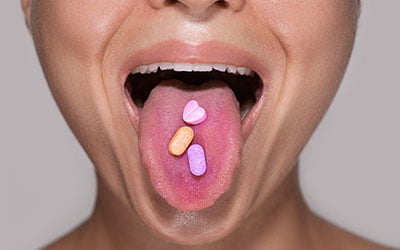
MDMA, or 3,4-methylenedioxymethamphetamine, is a synthetic psychoactive drug that alters mood and perception. It is commonly known as “ecstasy” or “molly.” MDMA is typically taken in pill or capsule form, but it can also be snorted or injected.
Effects of MDMA
MDMA produces a range of effects, including:
- Increased energy and alertness
- Heightened sensory experiences
- Feelings of euphoria and intimacy
- Increased empathy and connection with others
- Distorted perception of time and space
The effects of MDMA typically last for 3-6 hours. However, the duration of the effects can vary depending on the individual’s dosage, metabolism, and other factors.

Side effects of MDMA
MDMA can also cause a number of side effects, including:
- Increased heart rate and blood pressure
- Muscle tension and clenching
- Nausea and vomiting
- Jaw clenching and teeth grinding
- Blurred vision
- Chills and sweating
- Anxiety and paranoia
- Depression and mood swings
In some cases, MDMA can also cause more serious side effects, such as:
- Hyperthermia (overheating)
- Dehydration
- Seizures
- Heart attack
- Stroke
Risks of MDMA use
MDMA can be a dangerous drug, and there are a number of risks associated with its use. These risks include:
- Addiction: MDMA can be addictive, and some people who use it develop a dependence on the drug.
- Overdose: MDMA overdose can be fatal. Symptoms of overdose include hyperthermia, seizures, heart failure, and stroke.
- Interactions with other drugs: MDMA can interact dangerously with other drugs, including antidepressants, MAOIs, and stimulants.
- Mental health problems: MDMA use can trigger or worsen mental health problems, such as anxiety, depression, and psychosis.
MDMA and the law
MDMA is a Schedule I controlled substance in the United States, meaning that it has a high potential for abuse and no currently accepted medical use. Possession, manufacture, and distribution of MDMA are illegal in the United States.
Help for MDMA addiction

If you or someone you know is struggling with MDMA addiction, there are a number of resources available to help. These resources include:
- Hotlines: Call the SAMHSA National Helpline at 1-800-662-HELP (4357) for free and confidential information and treatment referral services.
- Treatment centers: There are many treatment centers that offer treatment for MDMA addiction. These treatment centers offer a variety of services, including individual therapy, group therapy, and medication-assisted treatment.
- Support groups: There are also many support groups available for people who are struggling with MDMA addiction. These support groups can provide a safe and supportive environment to share experiences and get advice from others who understand what you’re going through.
Comments